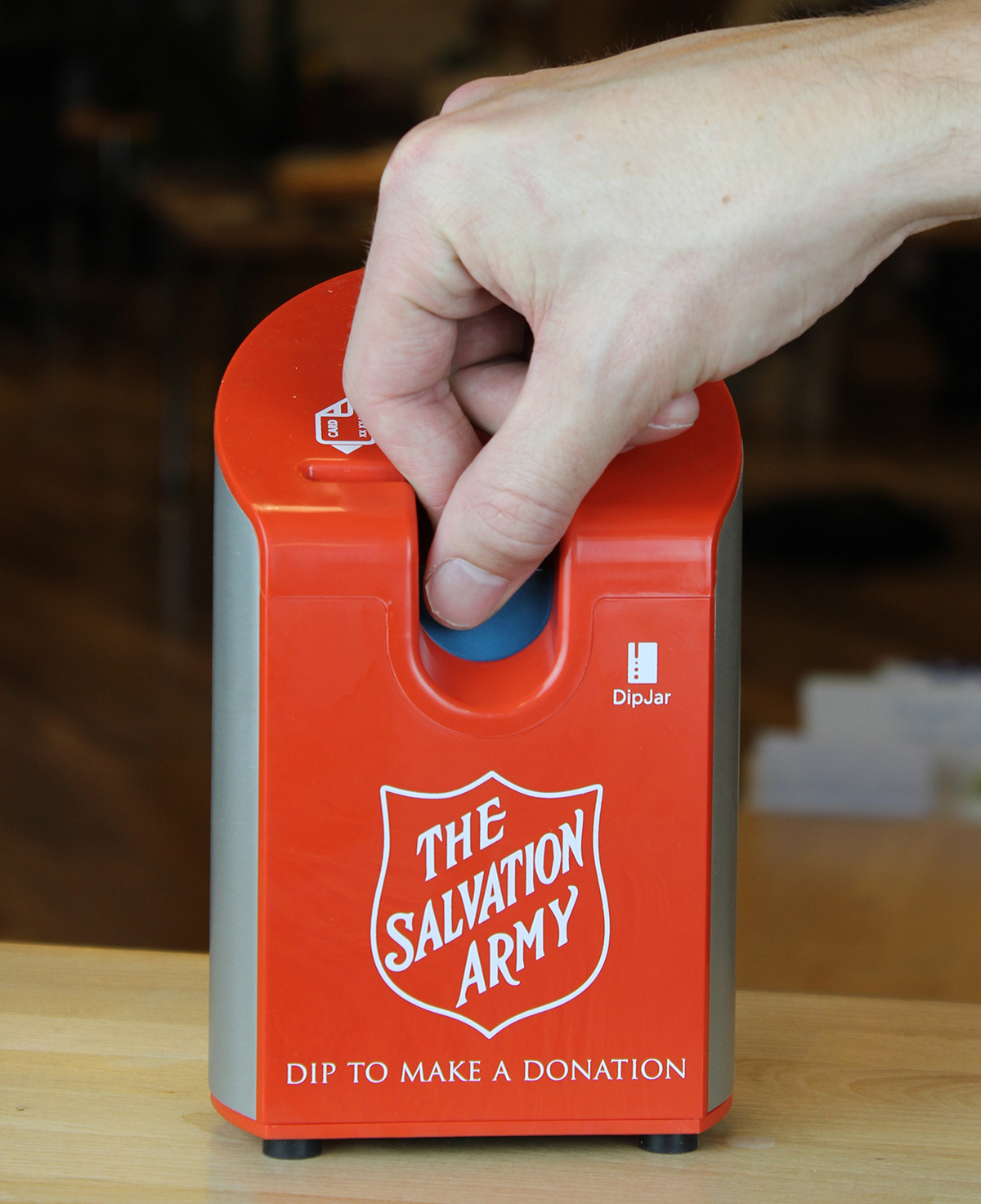Credit Card Enabled Salvation Army Kettles Are Being Made in Boston

Photo courtesy of DipJar
It’s the season of the ubiquitous Salvation Army red donation kettle, a slightly guilt-ridden time for people who aren’t in the habit of carrying cash.
But this year, pangs of guilt at the sound of the bell-ringing could be dispelled as the iconic red kettle gets a facelift.
New York-based company DipJar is redesigning the kettles to allow donations via credit card. The new jars are being made in Boston at Bolt, a hardware accelerator space downtown.
“We’re very excited about being able to let the cashless among us be generous this holiday season,” DipJar CEO Ryder Kessler told Boston.
Instead of passersby reaching into empty pockets, the DipJar invites them to insert and then remove a credit card from the kettle. Then, a $1.00 donation is charged, the kettle lights up, and it sounds an approving ding as a thank you for the payment.
The DipJar Salvation Army kettles are reported to be part of a two-month pilot test taking place at donation sites across Wisconsin, California, and Colorado. Kessler says there are 100 jars being used by Salvation Army stores and partners across the three states.
Kessler founded DipJar in 2012, first as a way for baristas to accept tips in coffee shops, before it evolved into a tool for donations. It moved hardware operations to Boston in April 2014. Kessler explains nonprofits can have a comprehensive view of all collections happening by using DipJar and its analytics, thus optimizing intake.
“Step one is capturing generosity from people who don’t have cash,” says Kessler. “Beyond that, it’s about unlocking the potential of data and these relationships.”
DipJar charges its clients for a subscription to its services, as well as a fee for each credit card transaction. Its largest customer is the Children’s Miracle Network, a nonprofit that raises money for children’s hospitals and medical research.
“We’re excited that we are a company that is really taking advantage of—and is very lucky to take advantage of—the great startup ecosystem that Boston provides,” says Kessler.
He says DipJar is a game changer when it comes to disrupting donation methods that organizations like the Salvation Army have been using for years.
“There’s just this challenge of diminishing cash in our pockets,” he says. “If things don’t change and we still continually rely on collecting cash and coins, that model is going to disappear for nonprofits.”


